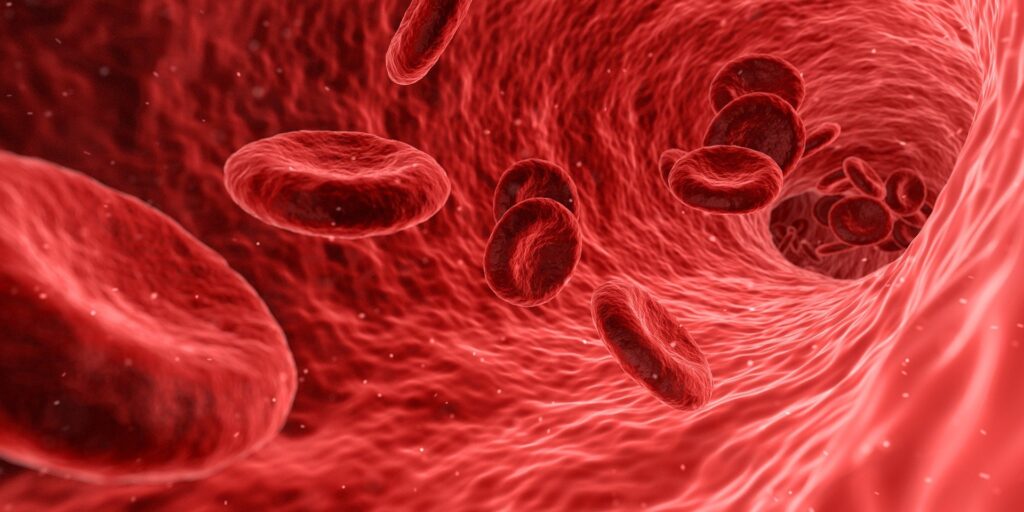Interesting Facts About The Humans Blood
Humans are fascinating creatures, and the human body is full of remarkable and important systems that keep us alive. One of the most fascinating and important systems is the circulatory system, which is responsible for transporting oxygen, nutrients, and hormones around the body. This system is made up of a complex network of vessels and organs, including the heart and the blood. Blood plays a vital role in keeping us healthy and alive, and there are many interesting facts about the human blood that you may not know. In this article, we’ll explore some of the most interesting facts about the human blood that make it so important to our lives. Find some interesting facts about humans nails on the link.
The Fascinating Journey of Blood Through the Human Body

Blood is a vital component of the human body that is responsible for many essential functions. It is composed of a variety of components, including red blood cells, white blood cells, platelets, and plasma. All of these components work together to transport nutrients, oxygen, and hormones, as well as to carry away waste and fight infection.
Blood begins its journey in the heart, which acts as a pump. From the heart, the blood is sent through the arteries, which are the vessels that carry oxygen-rich blood to the organs and tissues of the body. As the blood flows through the arteries, it delivers oxygen and nutrients to the body and collects carbon dioxide and other waste products.
Once the blood has delivered its payload, it is then sent to the veins. As the blood moves through the veins, it is filtered by the liver and kidneys, which remove any remaining waste. The blood then enters the vena cava, a large vein that returns the blood to the heart.
The heart then pumps the blood back to the lungs, where the blood picks up a new load of oxygen. The newly oxygenated blood returns to the heart via the pulmonary veins and is then sent out to the arteries once again. This process is repeated continuously throughout the day, delivering oxygen and nutrients to the body and removing waste.
The fascinating journey of blood helps to keep the human body functioning. Without it, the body would not be able to perform its normal functions and maintain itself. It is a marvel of nature that helps to keep us alive and healthy.
Surprising Facts About Blood Types
Blood types are an important part of medical care, as the blood of one person cannot be given to another without careful consideration. There are several facts about blood types that may surprise you.
Blood types are determined by the presence or absence of certain antigens on the surface of red blood cells. A person’s blood type is determined by inherited genes, and the most common blood types are A, B, AB, and O.
All blood types are made up of both red and white blood cells, but the ratios of red to white cells vary by type. Blood type O has the highest concentration of red blood cells and the lowest concentration of white cells, while type AB has the lowest concentration of red blood cells and the highest concentration of white cells.
- Type O is the most common blood type, found in almost 50% of the population. Type B is the second most common, found in about 30% of the population.
- Blood type is not the same as race; there is no correlation between race and blood type.
- Some people have rare blood types that are not as easily found in the general population. This includes type A-negative, B-negative, AB-negative, and Rh-null.
- While type O-negative is considered the universal donor, type AB-positive is considered the universal recipient, meaning it can receive blood from any other type.
- Blood type is also important for pregnancy, as the blood of the mother and baby must be compatible to avoid health complications.
By understanding the facts about blood types, you can better understand the importance of blood donation and the importance of knowing your own blood type.
Unbelievable Health Benefits of Donating Blood
Donating blood is one of the most altruistic and beneficial acts an individual can do. Not only does it help save the lives of those in need, it also offers numerous benefits to the donor. From physical health benefits, to improved mental health, donating blood helps to improve the overall wellbeing of the donor.
Physically, donating blood can help reduce the risk of heart disease. It has been shown that donating blood can lower the levels of iron in the body, which can help reduce the risk of cardiovascular disease. Additionally, donating blood can help protect against cancer. Regular blood donations can help reduce the buildup of harmful toxins in the blood that can lead to cancer.
Mentally, donating blood can have a positive effect on mental health. The act of giving blood can give a sense of purpose and satisfaction, as well as a feeling of contributing to the greater good. Studies have also shown that donating blood can reduce stress levels and improve mood and overall mental wellbeing.
Donating blood can also help individuals save money. Blood donors often receive discounts on medications and other medical services. This can be a great way to help offset the cost of medical bills.
In conclusion, donating blood is not only a noble act, it can also have numerous health benefits for the donor. It can help reduce the risk of heart disease and cancer, improve mental health, and save money on medical costs. If you are in good health, consider donating blood and taking advantage of these incredible benefits.